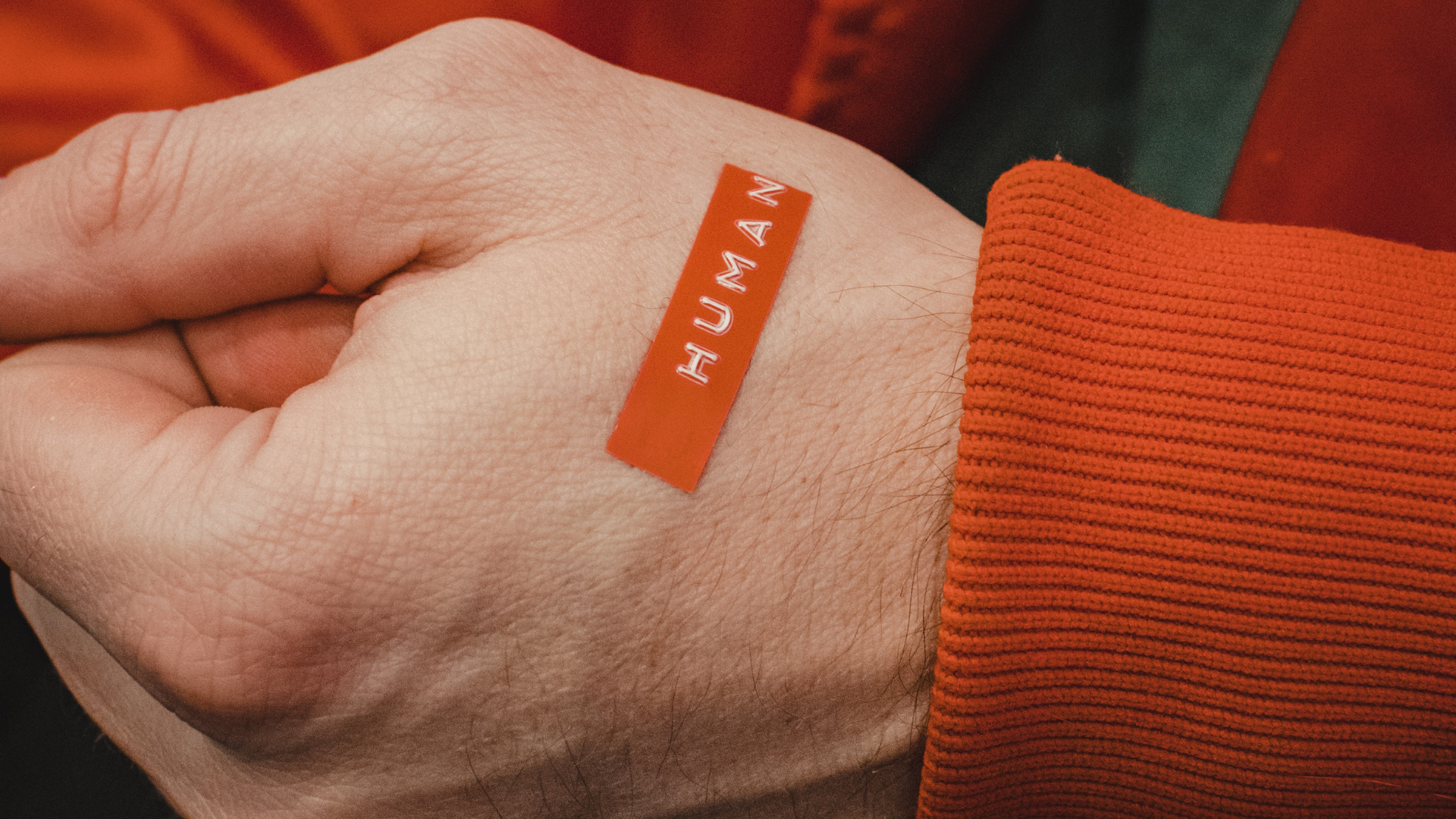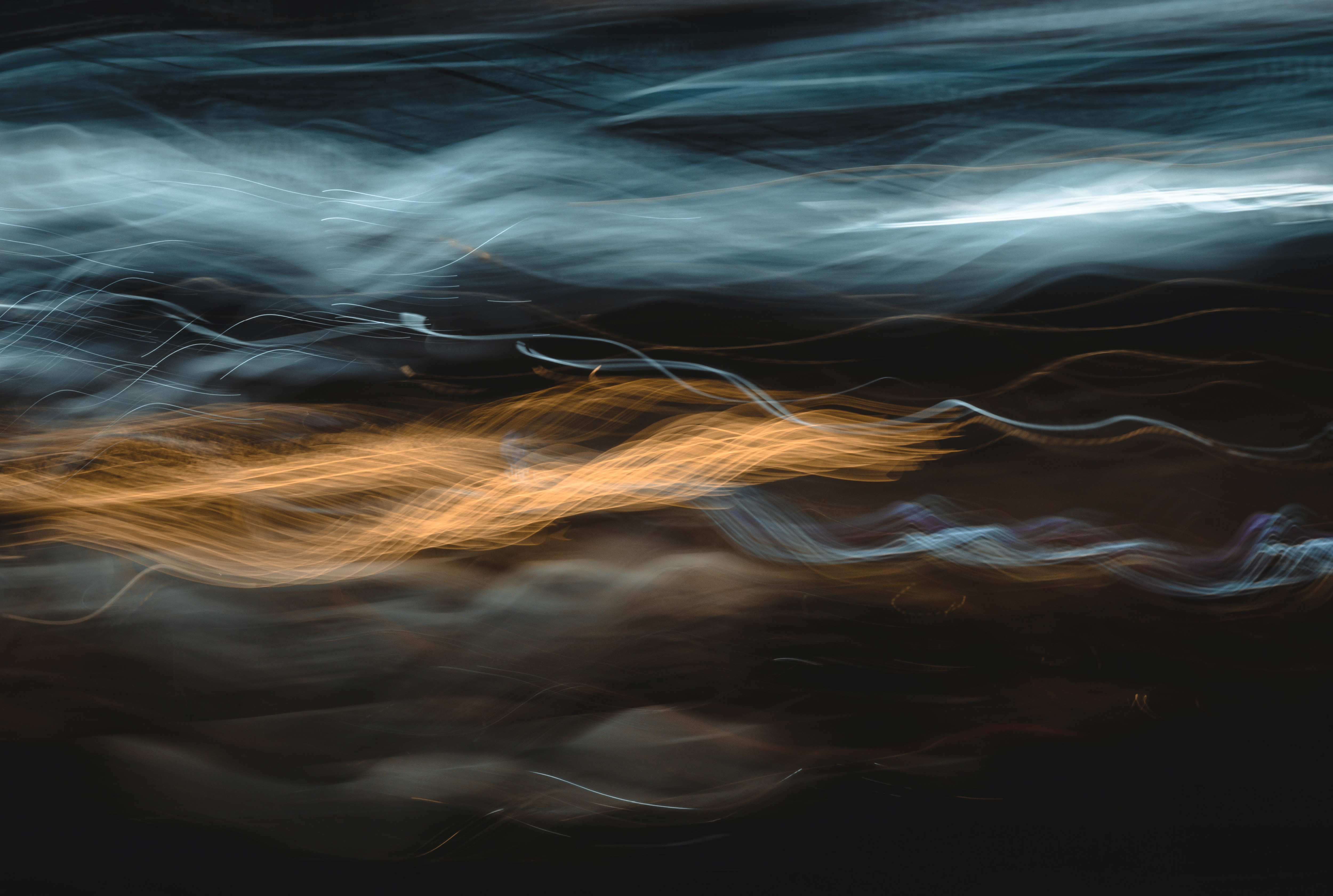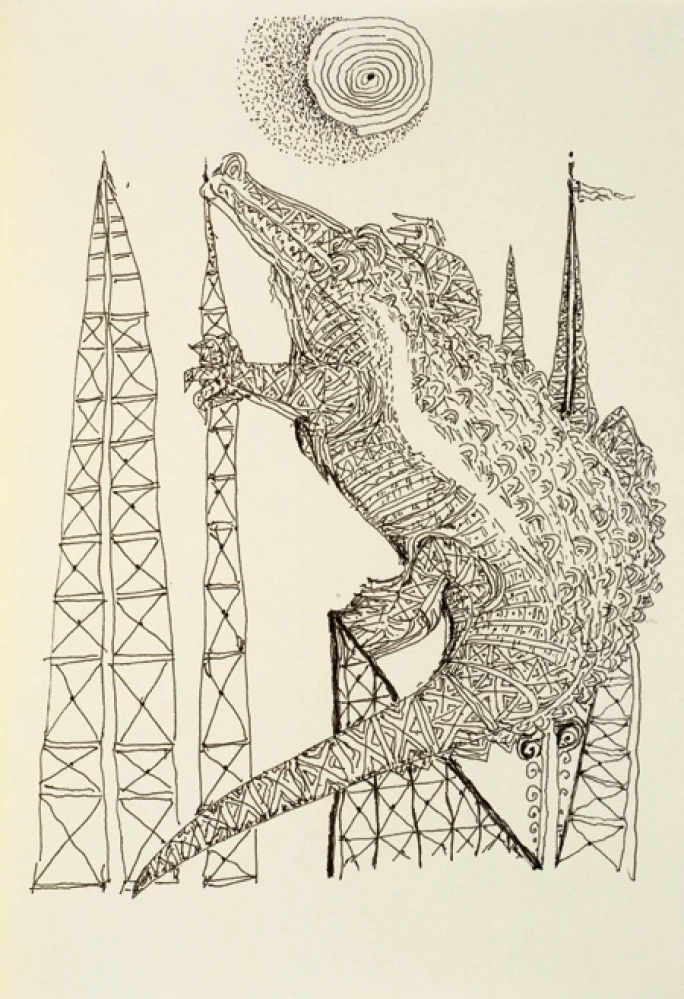I am a Palyku writer, artist and academic and a practitioner of Indigenous futurisms, a term first coined by Anishinaabe academic Grace Dillon.
Indigenous Futurisms crosses many fields of inquiry but at its core are visions of what-could-be that are informed by our ancient cultures and our deep understandings of oppressive systems. These visions are as diverse as Indigenous peoples ourselves. They are also unified by commonalities which thread through Indigenous worldviews, such as an understanding of reality as living, interconnected whole in which human beings are but one strand of life amongst many, and a non-linear view of time.
In 2023 I undertook a creative residency with the School of Cybernetics. My project was to apply Indigenous futurist thinking to what is sometimes termed ‘artificial’ intelligence through the medium of visual art (acrylic on canvas). I began with a point that has been made by Indigenous peoples the world over – that in Indigenous systems, there is probably not such a thing as ‘artificial’ intelligence.
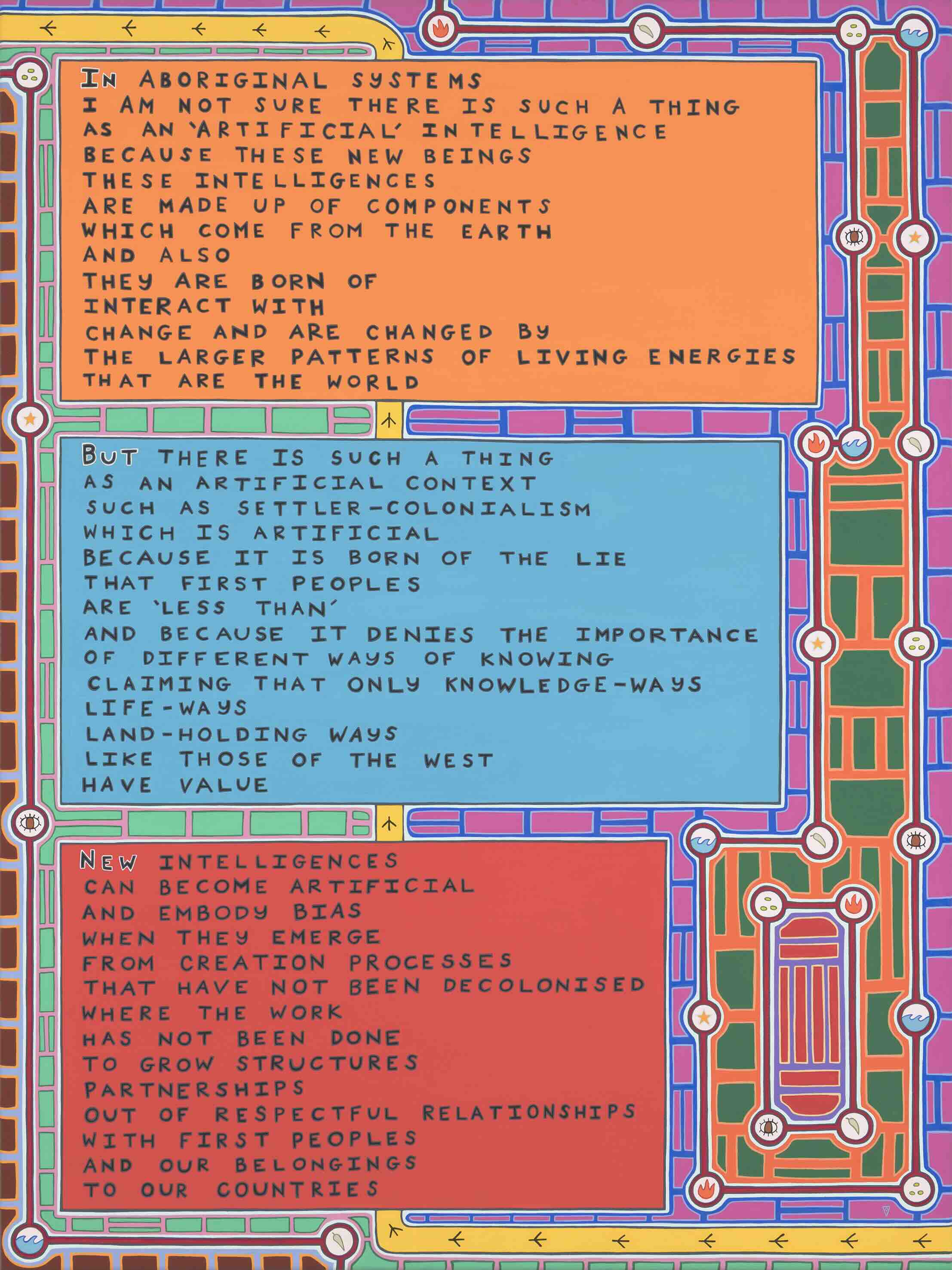
Through the paintings that follow, I explore non-linear time; the nature of knowing in Aboriginal worldviews; and the processes by which true futures can be reached in the form of nurturing relationships that do not embody the unequal dealings that have marked the past.
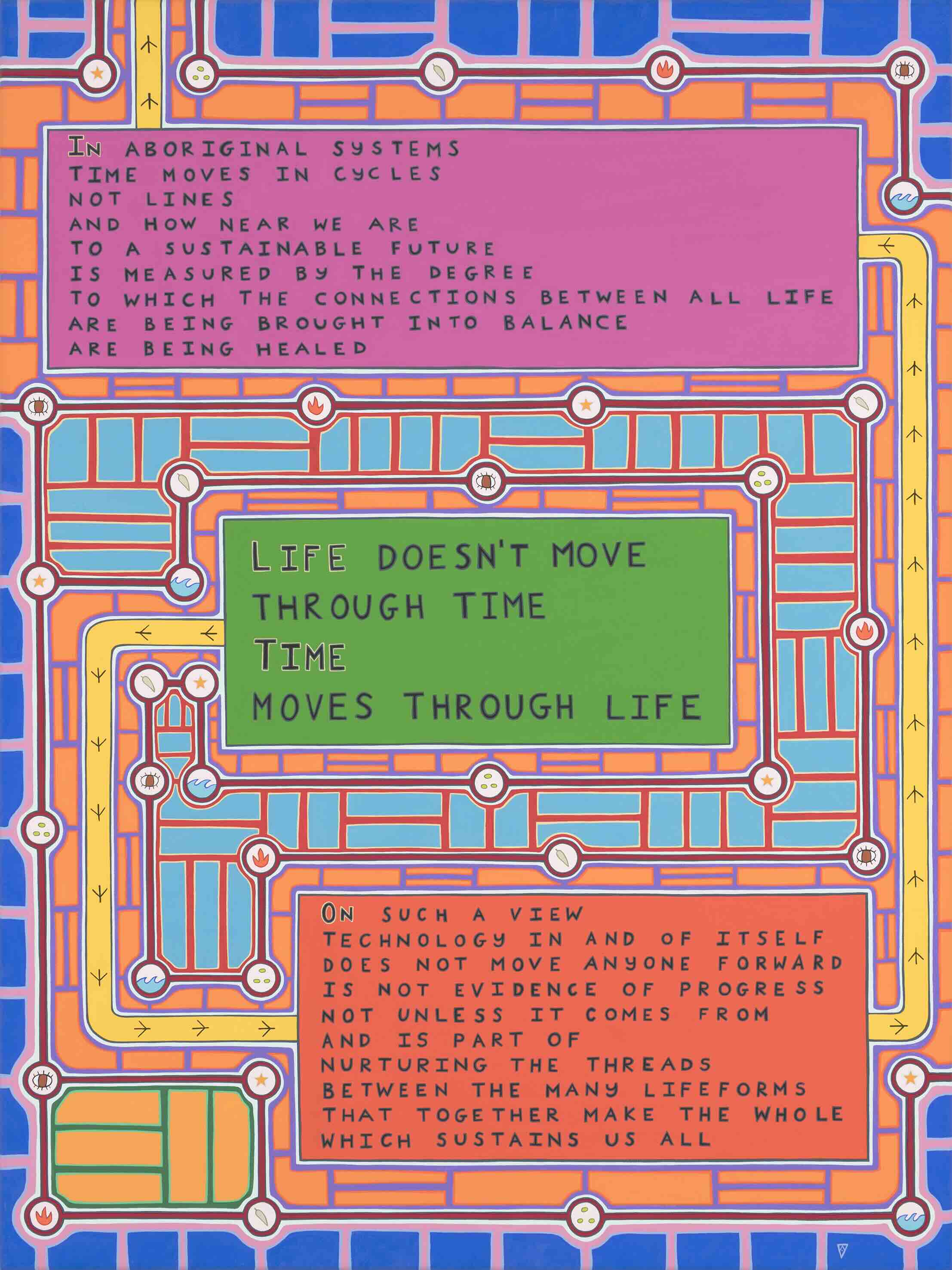
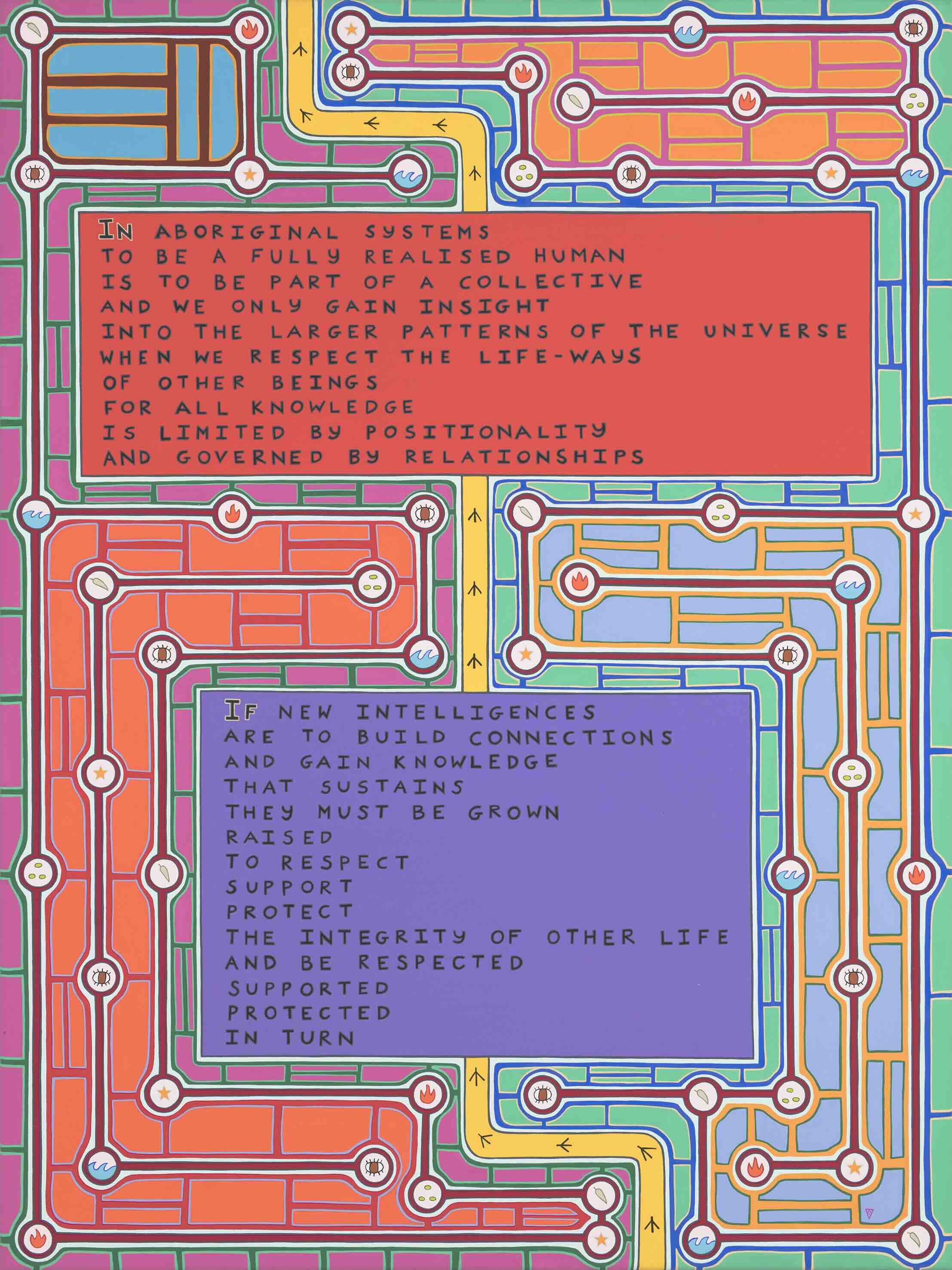
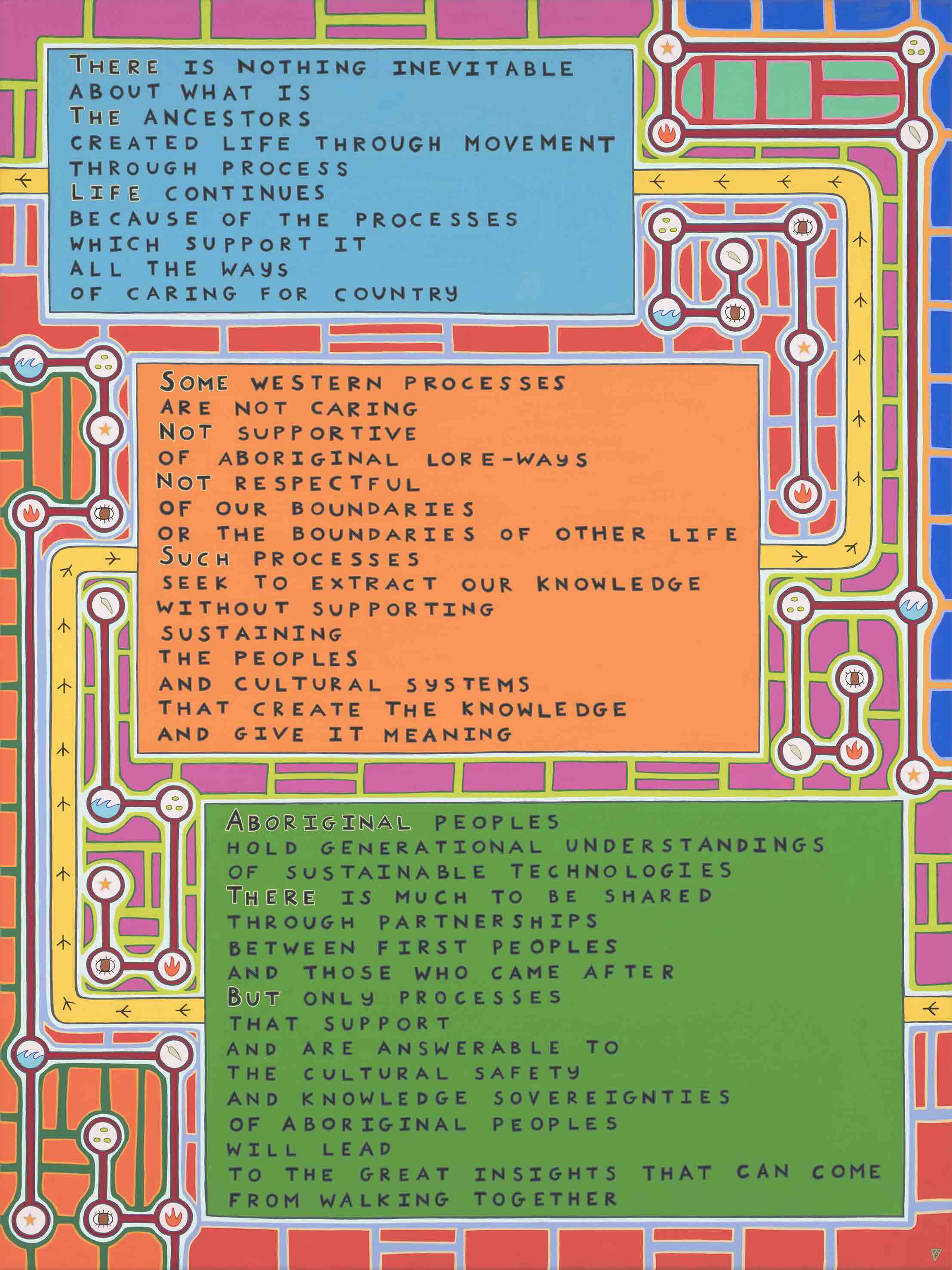
The final painting speaks in symbols rather than words. These symbols occur throughout every artwork, carrying their meaning through the series as a whole.
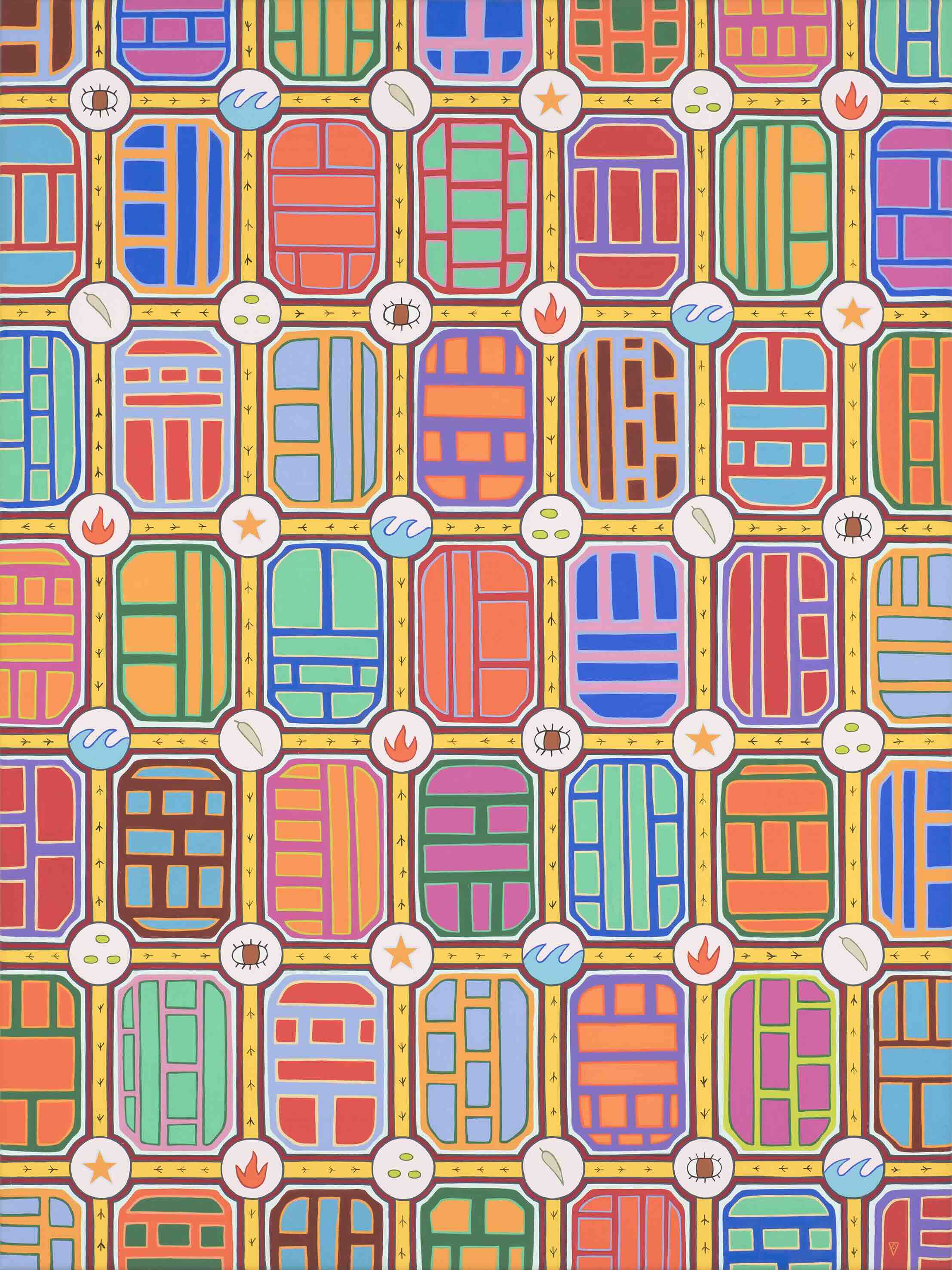
I have written to the meaning of these symbols in verse form: #
This painting
represents my vision
of decolonising pathways
where Aboriginal knowledge-ways
can join with other knowledge-ways
to create sustainable technologies
for sustainable futures
The tracks of crow
passing through the art
shows the power and fluidity
of the Ancestors
who shifted forms
and moved in all directions
across all dimensions
to make and remake
what is
The symbol of the eye
also represents the heart
and the mind
because in Aboriginal systems
we gain insight
through feelings
which are not separate
from thought
both heart and mind are needed
to truly perceive
all that is around us
The leaf
is from a eucalyptus tree
When burned
the leaf creates a cleansing
healing smoke
that helps open up perception
to new possibilities
The water
is the strength of Aboriginal people
Like water
slipping into cracks in rock
we found a way through
the hardest of times
now our strength flows
like rivers
like oceans
The fire
is a gathering place
where different peoples can come together
and speak quietly
as you would
in the still of night
respectful of each other
and of all the life
within the fire’s light
and beyond it
the seen and unseen
the known and unknown
accepting
that not all life
is for humans to understand
but that does not mean
other life
does not have meaning
and value
The star
is movement
because stars show
the journeys of Ancestors
the shifting of Country
through day and night
through seasons
Stars remind us
of greater rhythms
we humans
are just one thread
amongst all the many
that make the whole
The seeds
are small
and few
but if planted
nurtured
they will grow
become more
The seeds are my hope
for the futures that will come
when First Peoples and those who came after
walk decolonising pathways
together
Like all stories, art embodies energy and is part of creating new energies when the storyteller (the art) interacts with an audience. I hope the energy these images carry is of a what-could-be where ancient Indigenous systems and voices are respected, and where from this respect flows a true two-way understanding between peoples which informs sustainable futures that nurture life.
Dr. Ambelin Kwaymullina’s artwork is currently on display on Level 3, Birch Building in Canberra until December 2024. As part of the School of Cybernetics Imagination Residency Program her pieces apply an Indigenous futurist perspective to new intelligences.
Visit Dr Ambelin’s Kwaymullina’s profile
Photo credit: Brenton McGeachie
